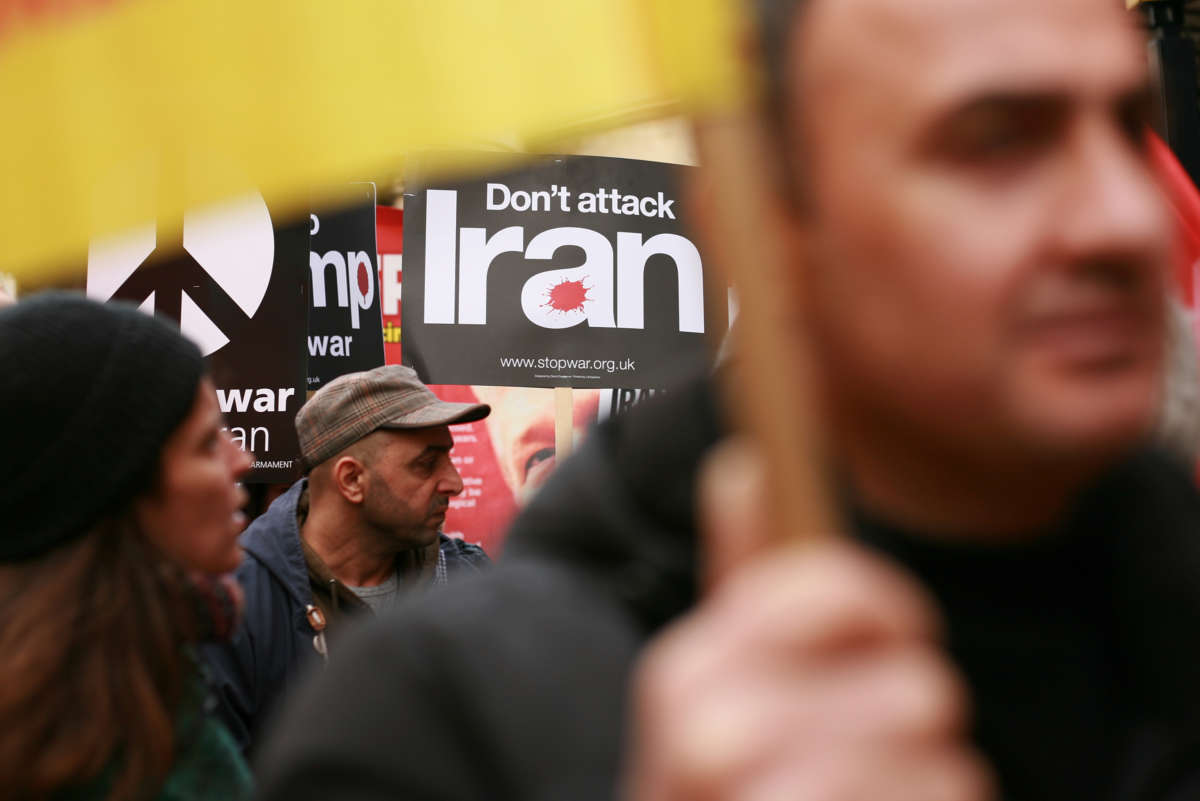Did you know that Truthout is a nonprofit and independently funded by readers like you? If you value what we do, please support our work with a donation.
With the surprise assassination of Qassim Suleimani, it’s hard not to wonder if Trump was trying to start a full-fledged war for an election year economic boost. To be clear, economics is not ever a justification for war, but it is important to understand the impact war can have on the economy.
The basic story with spending on a war, or any other military spending, is that it provides a boost to demand in the economy. In this sense, it is like anything else that would provide a boost in demand, such as increased spending on health care, child care or housing.
If we think about spending another 1 percent of GDP on a war (roughly $220 billion this year), in addition to current spending, it would have approximately the same impact on the economy as spending another $220 billion in any other area of the economy. There will always be some differences, because some spending will lead to more employment per dollar than others, and there will be differences in the composition of employment. However, the immediate effect on output will be similar.
Whether this or any war means a net boost to demand and growth depends on the amount of slack in the economy. In an economy with lots of slack, as was the case with the U.S. economy immediately following the Great Recession, a boost of spending due to a war or anything else would have undoubtedly led to an increase in demand and employment.
We saw this in a really big way with World War II, where we were spending more than 40 percent of GDP (over $8 trillion in today’s economy) at the peak. This led to huge increases in output and employment, as the unemployment rate fell to less than 2 percent.
This sort of massive increase in military spending was possible because of the enormous amount of unemployment resulting from the Great Depression. Of course, even as we put to work unemployed workers and unused productive capacity, the increase in spending was so large that we still needed rationing and wage and price controls to prevent runaway inflation.
But it is wrong to say that World War II was necessary to get the United States out of the Great Depression. We could have had a massive increase in spending on infrastructure, health care or any number of other areas that would have provided a comparable boost. There just was not the political support needed to undertake big spending increases outside of a war.
In the current political situation, that is also true. There is no way that the Republican-controlled Senate would support a substantial increase in spending on social programs, even if the House approved it. And, there is no way that even House approval could be taken for granted. This could change after the 2020 election, but there is no doubt that if we are to see any large-scale increase in spending in 2020, it will be because of war or the fear of war.
Whether this provides a boost to the economy is difficult to determine, since the 3.5 percent rate is quite low compared to rates we have seen over the last 50 years. Can we push down the unemployment rate another 0.5 percentage points to 3 percent, or perhaps even lower, without triggering a serious problem with inflation?
Anyone who claims to know the answer to that one has not been following the data closely. A few years ago, most economists argued that inflation would start to become a problem if the unemployment rate fell below 5 percent. That was obviously wrong. We still don’t see evidence of inflationary pressures, but that doesn’t mean the unemployment rate can go still lower without any problems.
This brings up the other part of the story. If we do start to see inflationary pressures, the Federal Reserve will move to slow the economy by raising interest rates. This will slow home building, reduce consumption fueled by mortgage refinancing, and also, to a lesser extent, reduce public and private investment. In that story, the increase in spending associated with a war doesn’t lead to a gain in employment and growth, it just pulls away resources from productive areas of the economy.
Insofar as we have less public and private investment, that will mean the economy will be less productive in the future. That’s a story where a war will slow growth, at least over the longer term.
This is a major difference between spending on a war and spending in areas like education, health care and clean energy. These forms of spending will have positive long-term effects on the economy, so they can be net long-term gainers even if the economy is near its capacity.
So the final answer on Trump using a war as a way to boost the economy: It is not clear that it will offer even a short-term benefit. What is clear is that war will carry a long-term cost, even before we start to consider all the deaths and ruined lives among the victims.
Press freedom is under attack
As Trump cracks down on political speech, independent media is increasingly necessary.
Truthout produces reporting you won’t see in the mainstream: journalism from the frontlines of global conflict, interviews with grassroots movement leaders, high-quality legal analysis and more.
Our work is possible thanks to reader support. Help Truthout catalyze change and social justice — make a tax-deductible monthly or one-time donation today.
